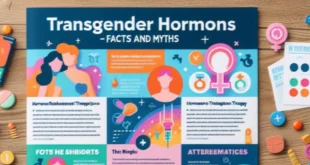Transgender people comprise 0.3 % of American adults, or about 700,000 people, according to a 2011 study by the Williams Institute. And their unemployment is 2X the rate of the general population, with athema also 4X more likely to live in poverty (according to the 2011 National Transgender Discrimination Survey, (n=6,450.) The challenge then is how do we get our community employed and above the poverty line?
The U.S. Equal Employment Opportunity Commission (EEOC) ruled that discrimination based on gender identity is sex discrimination, triggering Title VII of the Civil Rights Act of 1964. President Obama has also signed Executive Orders protecting federal employee and federal contractor transgender workers. Some states and localities have passed laws protecting transgender workers. Despite this, many transgender people struggle to find work.
And now, many states are are pushing back and try to remove protextions for the transgender community, just as President Trump announced his intensions to block the trans community from serving in the military.
Aside from the surface issues of presentation, (how you look) there is the issue of legal identification. Almost all job applications ask for legal name, social security number, and past references. If you haven’t changed your name yet, you face the ugly requirement of putting your legal name on your application instead of your gender conforming name. You may also have to check the dreaded M box instead of the F, or vice-versa.
Macy’s, no doubt as a result of the Macy vs. Holder decision, has adopted a very trans-friendly application that adds a space where you can put down the name you prefer to be called by, in addition to your legal name.
Companies can’t get around the legal name issue for obvious reasons. Even if you have changed your legal name, you have to deal with all of your references knowing you by your birthname. So many transgender people wonder, often with some level of desperation, how they will find gainful employment other than the local street corner. Below is some advice to help you land a decent job.
LGBT Job Fairs
Hey, if companies have tables at these, they are looking to hire you! That should give you a great confidence boost. Even if they are looking for the L or G component, at least you know your odds are better than a blind interview. Affirmations in Ferndale, MI has a LGBT career fair, and many large cities host LGBT career fairs. You may have to travel, but you hook up with some local girls and make a day out of it while you are there. Getting hired will take some effort; be prepared to put some mileage on your car and be prepared (and willing) to relocate.
I have to admit that I’ve been a bit disappointed with this one, but it is obligatory that you at least have a good profile there. Most HR departments will look you up online, and LinkedIn is one of the first places they look — so you need to have some good info on your publicly accessible profile. ou can also search for jobs and networks there, and it is good for at least seeing the ebb and flow of local jobs in your area.
Networking
As transgender people enter the workforce, we have an obligation to help one another. Flat out, yes we do. In the same way that there is an good ol’ boys network, there needs to be a “former old boy’s network,” (or former girl’s network.) Affirmative actio — regardless of your political views as to the fairness of it — helped African Americans. Employee support groups, both company led and privately formed, definitely helped move more African Americans into the professional workforce. We need to help each other in the same way, and this includes those closeted individuals who aren’t ready to come out themselves, but can definitely help a sister (or brother) out.
Be That Much Better
You need to be stellar awesome in your communications, interview, and preparation. The cards will be stacked against you, not only from being one of hundreds of applicants (potentially), but realistically because of your transgender status. You need to be that much better than everyone else so as to shine so brightly that your ability transcends your gender. Proper research on the company you are interviewing with is essential. Preparation, such as practice interviews, and presentation (dressing) skills are essential. Record yourself in a practice interview and lsiten to it over and over until you’ve worked out all the flaws. Get a friend to work with you. Let them ask off the cuff questions so you can get comfortable in your responses. You can learn a lot about what the interviewer sees; then work to correct any mistakes and perfect your responses.
Human Rights Campaign Foundation’s Corporate Equality Index
This is a great resource to quickly check up on how LGBT friendly companies are. Companies are rated on a score of 0 to 100. The higher the score the more inclusive the company is. You should also check out the company website and find their diversity and non-discrimination language. If they have transgender listed, then it is an indication that at least someone in HR is aware of transgender people.
Be Confident
Confidence is a huge asset! You are an asset tho the company, you know, and need to let them see and feel it too — without coming across as arrogant or conceited. There are many out there that will patronize you, and/or be condesending. Don’t let them. You can be confident is who you are and what you’re capable of contributing, all while maintaing your composure. Be upfront about your status, don’t hide it, but don’t overly volunteer more than they want, or need, to know. You may also have to walk the fine line between being a “crusader” and getting hired. Some questions that are put to you may be illegal, so do some homework and be prepared. But remember your goal is not to be confrontational, it’s to get hired. Grace and gentle education can go a long way. Finally, always follow up. You can never close a sale if you don’t ask for it. Proper manners and etiquette are always appreciated, but show them through your eagaerness and persistance that you want this job.
Take Acton if You are Wronged
If you are definitely discriminated against you are unlikely to sue — it’s expensive, time consuming, and in some cases very public. However, you could file a complaint with the Equal Employment Opportunity Commission. You can also inform national and/or local advocacy groups, such as the afore-mentioned Human Rights Campaign, or your local LGBT organization. At the very least, it will help inform others about how companies treat transgender people.
Hope this helps.
Jenni Contrisciani, MBA
08 April 2001 @tglife.com
 Lesbian, Gay, Bisexual, Transgender & Intersex News Lesbian News, Gay News, Bisexual News, Transgender News, Intersex News, LGBTI News
Lesbian, Gay, Bisexual, Transgender & Intersex News Lesbian News, Gay News, Bisexual News, Transgender News, Intersex News, LGBTI News




